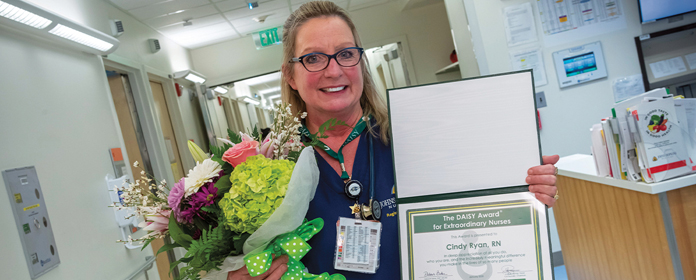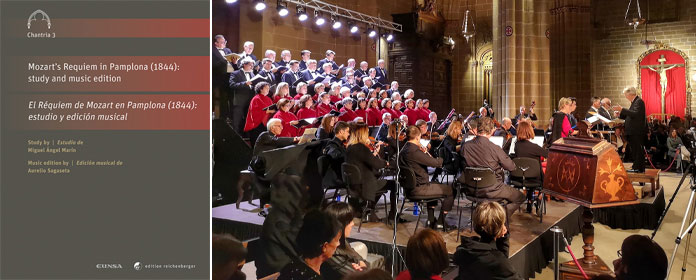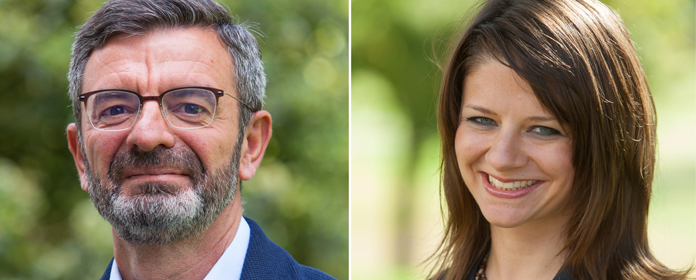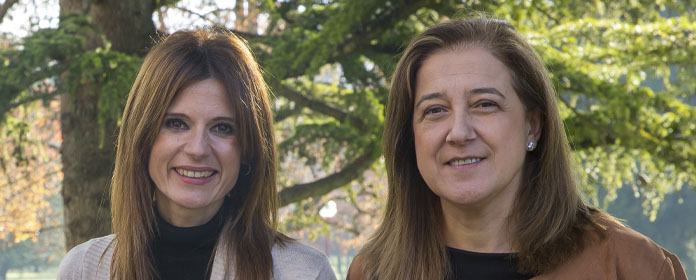The fourth graduating class of Master's Degree at research in Social Sciences bids farewell at a meeting organized by the ICS.
The six students, from Colombia, Spain, Guatemala, Mexico and Peru, have completed the last subjects via videoconference.
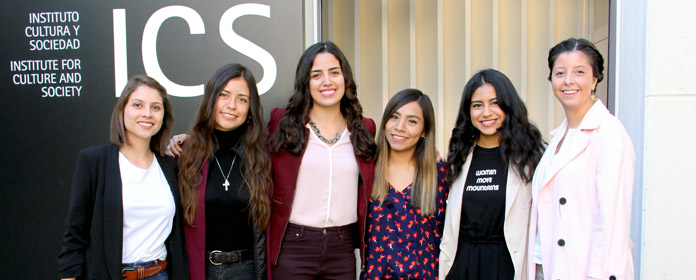
The students of the fourth promotion of Master's Degree in research in Social Sciences of the University of Navarra, coming from Colombia, Spain, Guatemala, Mexico and Peru, has been graduate. They are Dania Andrade, Carmen Basanta, Renata Coronado, Yuliana Franco, Andrea Bravo and Tatiana George. Those who are in Pamplona were able to say goodbye at an informal meeting organized by the Institute for Culture and Society (ICS).
Four of them have made their programs of study thanks to a scholarship of Social Trends Institute and another has had a scholarship scholarship University of Navarra-group Santander, in addition to average scholarship for having won the III Contest of essay in Social Sciences, organized by the ICS.
The program, accredited by the National Agency for Assessment of Quality and Accreditation, is coordinated by the ICS and has the direct partnership of the Schools of Communication, Education and Psychology and Philosophy and Letters.
The beginning of the confinement coincided with the last weeks of the program and the students have completed some subjects by videoconference. They have also completed their final projects Master's Degree (TFM) supervised remotely by their respective tutors. Three of them tell us about their experience.
-
Renata Coronado (Peru)
Renata Coronado points out that with the financial aid technology she was able to finish her classes well at Master's Degree and find the necessary material for her final papers virtually. "The most difficult thing has been being away from my family in these uncertain circumstances, especially because in Peru right now the status is still serious," she mentions.
After graduation, she wishes to collaborate in projects of research in her country "that will help to better understand some phenomena in the field of family and Education". In her TFM she has specifically researched on intimate partner violence among adolescents and stresses that she would like to deepen the understanding of this phenomenon in Peru. "Moreover, this goes hand in hand with my desire to continue practicing university teaching ," she says.
From MICS, she retains the experience of dealing "with professionals - both professors and colleagues - from different disciplines, with different interests and points of view, who also come from other countries with different social realities", she emphasizes. She indicates that this has enriched her vision "with respect to the collaborative work and what can be contributed if one knows how to make quality research ".
-
Carmen Basanta (Spain)
Carmen Basanta is interested in researching the relationship between skill creative and professional well-being, and during her forties she has seen "how in everyday life, one forgets to look at oneself, contemplate oneself and understand how one is inside and in relation to one's work".
"I've had a lot of time to experiment, in a homemade way and staff -she says-, how activities related to the arts (cinema, music, reading or plastic activities) have an impact on my level of connection and productivity with my work".
And she believes she is not alone: as she details, searches on arts-related issues on Google increased up to 75% between March 14 and April 24, from agreement with data consulted on Google Trends last May 2. "The quarantine has been a good occasion to understand that beyond entertainment, culture and the arts help us to understand ourselves, to listen to ourselves and to better connect with others and with our work", he comments.
He adds that the current social status has made him reaffirm the importance of "the love of service to others" guiding the north of his professional future, which he would like to realize through the development of a doctoral thesis if economic circumstances allow it. "I believe that the academic degree program is a way of being in the world that is directly related to my way of understanding it," he says.
From his time at MICS he highlights, on the one hand, "the horizon of knowledge" that has opened before his eyes with Sociology. "Perhaps a somewhat obscure science at the beginning because of the descriptive basis that characterizes it, but which over time acquired shades of light with the classes of professors like Madsen or the relational approaches of Archer and Donati," she relates. "Certainly, learning to think like a sociologist now allows me to understand much better social dynamics that I took for granted until recently."
On the other hand, she values "the enrichment staff generated as a result of having shared many hours of class, stress, reading, conversations, projects and illusions with five very valuable women to whom I wish all the best in the future that awaits us at the end of the MICS".
-
Dania Andrade (Guatemala)
Dania Andrade says that in the first weeks of the confinement they continued with the classes and took online exams and that, "despite the strangeness of the status it was possible to have a comprehensive learning experience and connect very well with the teachers".
She points out that since the group was small, "the sessions did not consist of listening to a teacher through the screen, but rather we all interacted. This made them more human. She also emphasizes that the teachers have been very available during these weeks and that thanks to the attention of the librarians, they were able to access some books on paper, which facilitated the completion of the TFM.
What she liked most about MICS, she acknowledges, was that she learned to ask questions correctly and to "visualize an issue from multiple perspectives" without getting "stuck looking at the problem." "I've learned to approach it effectively and in a methodological way," she says.
His next step will be the doctorate: "During the intensity of what it meant to study the MICS one of my great motivations was a very simple phrase and, perhaps less original than I imagine, which is the following 'to dedicate oneself to the research is to dedicate oneself to the generation of the knowledge'".

